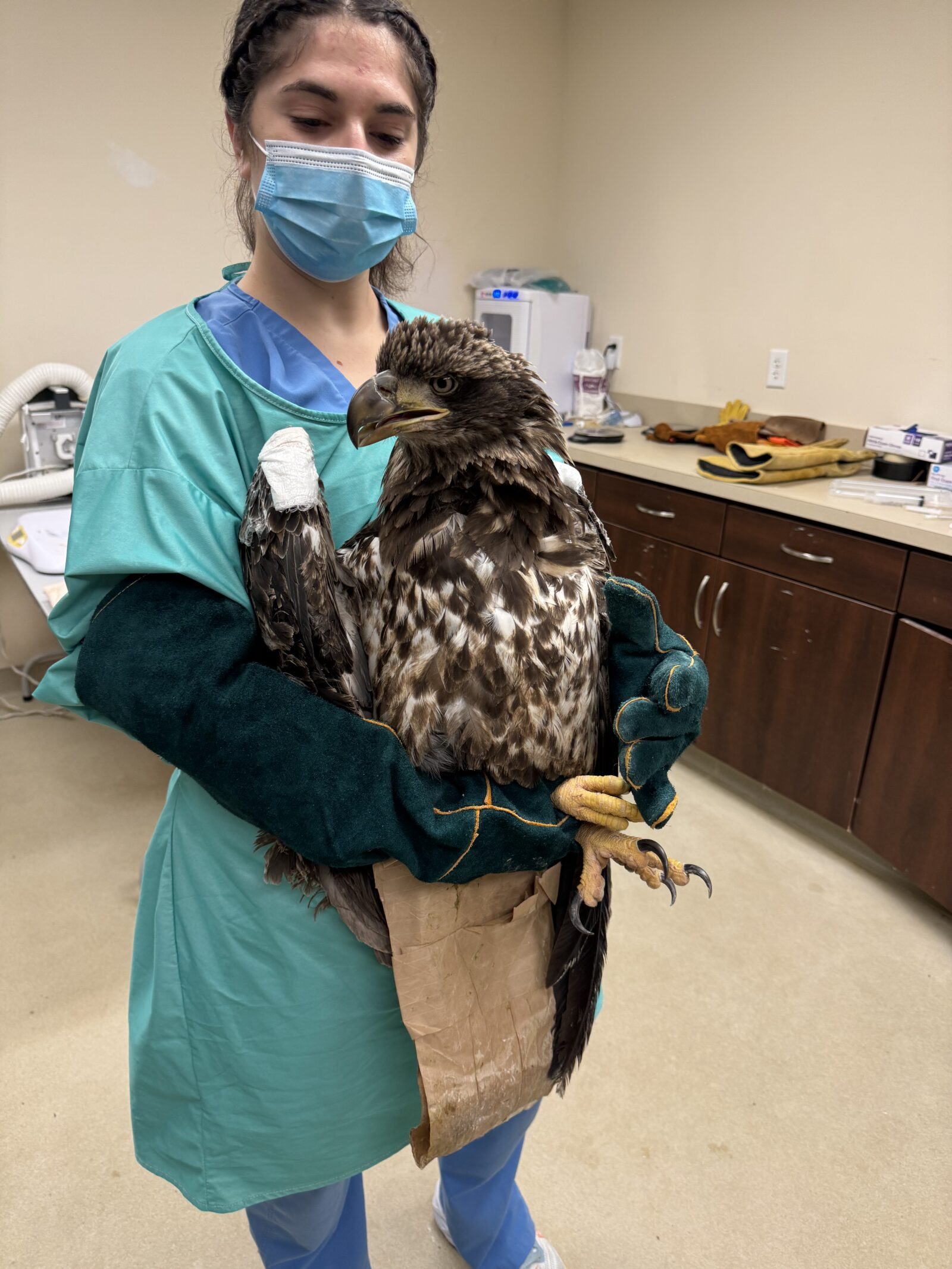Blue Ridge Wildlife Center to Release Rehabilitated Immature Bald Eagle in Leesburg

Eagle suffered from lead poisoning, a common killer of raptors.
LEESBURG, VA — Blue Ridge Wildlife Center will release a rehabilitated immature eagle that has been in its care for over two weeks. The young eagle (no white head or tail yet) was found unable to fly near a Loudoun County landfill facility. When it was taken in, BRWC veterinary staff noticed it had abrasions on its face and a clay-like material in its mouth along with a sore — all demonstrating that it was down and uncoordinated for an extended period of time.
Upon testing, the eagle had elevated levels of lead in its system (as with many eagles taken in by BRWC). It is suspected the bird may have ingested other heavy metals as well. BRWC has been treating the bird for its lead poisoning with chelation therapy since it was admitted. Once the levels dropped, the bird was moved to BRWC’s outdoor prerelease enclosure so it could fly and demonstrate it was ready for release.
Lead toxicity in wildlife comes primarily from wildlife eating the lead fragments of ammunition in gut piles or dead deer that were previously shot but survived long enough to get away from the hunter, or that the hunter left behind. Lead toxicity is particularly high in birds close to hunting season (as this is) and wildlife organizations have long advocated for hunters to use lead-free ammunition.
BRWC, the only dedicated wildlife hospital in Northern Virginia, is a nonprofit 501(c)(3) organization caring for native wildlife by integrating veterinary medicine, rehabilitation, education, and research. The center assists more than 3,500 native wildlife annually. Learn more about the center’s mission at blueridgewildlifectr.org.
Photo courtesy of Blue Ridge Wildlife Center.
Posted on: February 12, 2024








